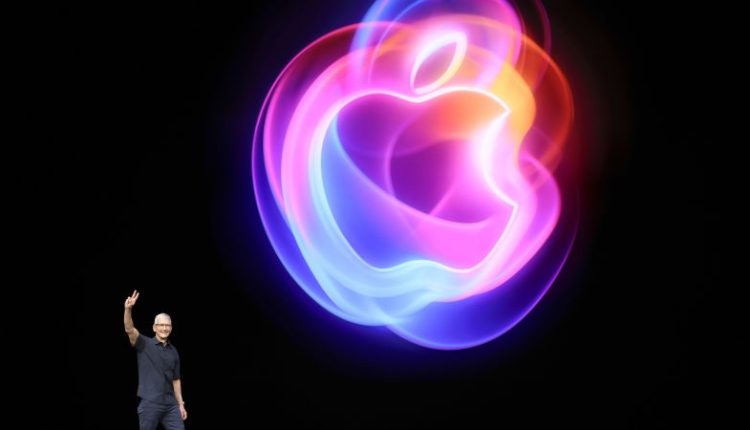A version of this story appeared in CNN Business’ Nightcap newsletter. To get it in your inbox, sign up for free, here.
Apple is wedging AI into its phones like a new U2 album no one asked for.
Whether you’re an Apple fangirl who has already reserved the $1,200 iPhone 16 Pro Max or a normie trapped in too many yearslong blue-bubble-only group chats, at some point soon you’ll end up with artificial intelligence features built right into your phone.
It hardly matters that the real-world applications for most AI products are, so far, both underwhelming and unreliable. In the absence of any other major innovations, Apple is betting even nascent AI tools will inspire folks to upgrade and usher in a “super cycle” of sales for the next year.
However, given the “Apple Intelligence” highlights the company previewed in June and officially rolled out Monday, investors and customers alike may want to temper their expectations. Even Apple seemed to hedge a bit: It never mentioned the words “artificial intelligence.”
The new tools look … fine. Cute, even. They are exactly what we’ve come to expect from Apple — intuitive, friendly, mostly not creepy. With iPhone 16, you’ll get a smarter, more human-sounding Siri. You’ll be able to generate bespoke emojis by typing something like “heart eyes zombie eating pizza.” You can point your camera at a dog in the park and the phone can tell you (approximately) what breed it is.
But the AI tools on offer right now are firmly in the “nice to have” category — not the “must-have” that would spur someone to drop a grand on a new device.
“Despite the unknowns of feature timing and global rollout, I believe consumers will get excited about these AI features,” tweeted Gene Munster, managing partner at Deepwater Asset Management, ahead of the phone’s formal unveiling at Apple HQ. Munster expects iPhone sales will exceed Wall Street’s estimates in the coming quarters.
Of course, the way iPhone cycles go, even a ho-hum iPhone 16 should do decent sales, given that many customers have been holding onto older phones and are due for an upgrade anyway. That’s still a positive — brand loyalty is one of Apple’s biggest strengths, which is partly why Apple is taking its time to integrate AI slowly and transparently (having learned its lesson from the 2014 U2 album debacle).
For an event built around unveiling Apple’s first AI-powered iPhone, there was one striking absence over the two-hour presentation: the words “artificial intelligence.”
Instead, CEO Tim Cook and other company spokespeople referred only to their “intelligent” features.
To be clear: “Apple Intelligence” is Apple’s proprietary AI. But Apple — the most brand-conscious company on the planet — understands something that often gets lost in the bot-pilled bubble of Silicon Valley: Regular people don’t trust AI.
While developers in Silicon Valley and investors on Wall Street have gone all-in on a future powered by bots, the people who are meant to be buying these AI-powered devices need a little more convincing. (And even Wall Street enthusiasts are increasingly losing patience with the technology’s lack of ROI.)
Over the summer, a study published in the Journal of Hospitality Marketing & Management found that describing a product as “AI-powered” tends to lower a customer’s intention to buy it.
It’s not hard to see why: Our interactions with chatbots and AI image generators have quickly taught us to be skeptical of their stilted, often flatly incorrect renderings. When something looks inauthentic, we now say it looks like it was generated by a bot. When we hear a politician fumble their stump speech, we quip that it sounds like ChatGPT wrote it.
The always image-conscious Apple knows better than to fall into the “AI” trap, even if its whole pitch for the new iPhone is AI.
Read the full article here

